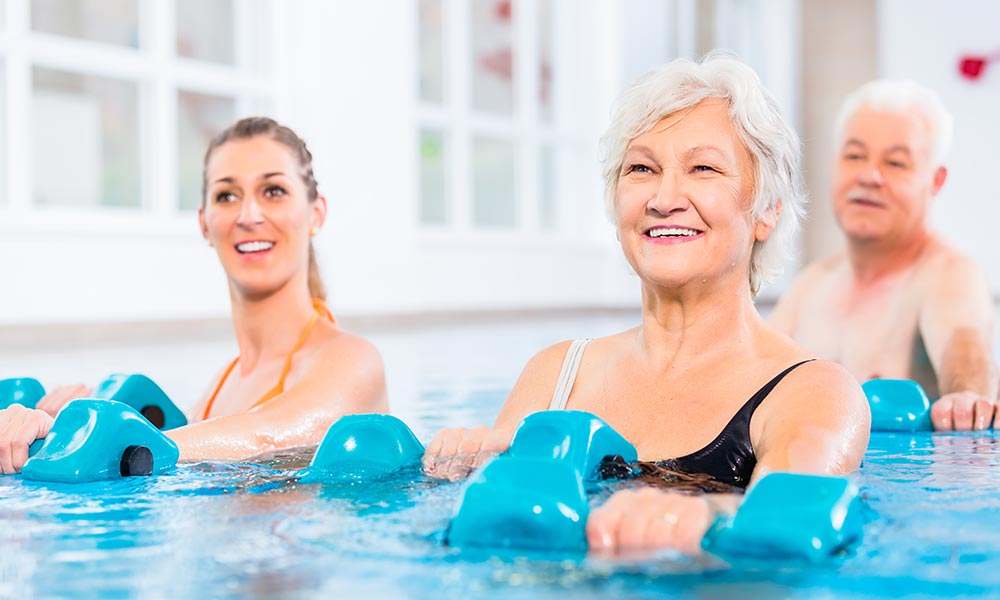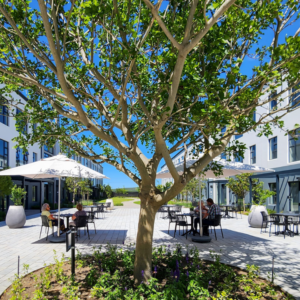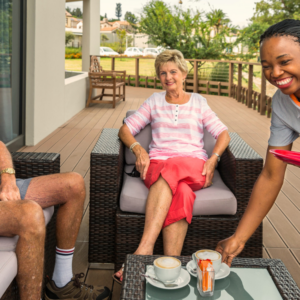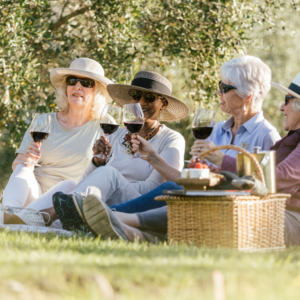
The best ways to exercise in your 80s
Exercise is crucial at every age – yes, even in your eighties. In fact, as long as you’ve been given the go-ahead by your GP or relevant specialist, there’s no reason to stop exercising, and plenty of reasons to keep going.
Here are some of ways regular exercise can benefit you in later life:
- Builds strength and improves balance, which helps reduce your risk of falling.
- Helps you stay flexible.
- Keeps your brain active and your heart healthy.
- Boosts your memory.
- Helps you remain independent for longer.
- Prevents bone and muscle loss.
- Helps you maintain a healthy weight.
Ready to get active? The following five activities are all outstanding options in your eighties. But first, a word of caution: If you suffer from osteoporosis or any other degenerative disease, it’s important to let your teacher or instructor know as there are certain exercises you’ll need to avoid in order to prevent injury.
Pilates
If there’s one good reason to choose Pilates as your exercise of choice as you age – aside from the fact that it increases strength, improves balance and flexibility and that almost every exercise can be adjusted to suit different ages and abilities – it’s this: the discipline’s founder, Joseph Pilates, and his wife, Clara, taught and practised it right up until their deaths – he at 83 and she at 95!
Yoga
This is another discipline where exercises can easily be adapted, taking your ability and any age-related limitations into account. Yoga is also excellent for balance, flexibility and increasing your strength, among several other benefits.
Aqua Aerobics
The wonderful thing about exercising in water is that your body is essentially ‘weightless’, which means that very little stress or pressure is placed on your joints. What’s more, water creates resistance, which means you’re able to do strength training (this is essential for limiting the loss of muscle and bone), without having to lift heavy weights.
Walking
There are numerous benefits to walking in later life – it keeps your heart strong and your weight in check, it helps keep you flexible, it strengthens your bones, it boosts your mood, and it can help lift some of the symptoms of depression. What’s more, according to one study conducted by a team at the University of California, San Francisco, which included Dr Kristine Yaffe, an expert in cognitive aging and dementia, women who walk regularly are less likely to experience memory loss and other age-related cognitive decline.
Tai Chi
The same study recommends the ancient Chinese practice of Tai Chi (along with walking and aqua aerobics) as a suitable form of exercise for seniors. And if this discipline looks too slow to be of any value, rest assured that there’s plenty happening to your body while you move through the measured exercises – your bones are strengthened and improvements are made to your cardiovascular health as well as your balance. In fact, studies have shown that Tai Chi could reduce falls in older adults by as much as 45 percent.



